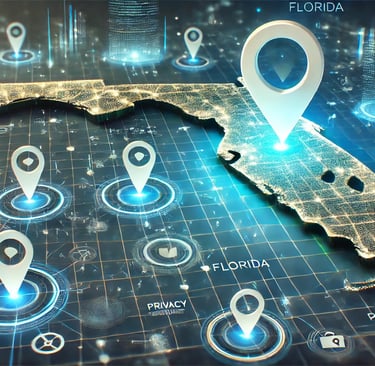The Rise of Geolocation Services in Florida's Surveillance Landscape
Discover how Florida's Statute 934.425 reshapes surveillance laws, emphasizing geolocation services for businesses, law enforcement, and public safety while addressing privacy challenges and legal boundaries. #Privacy #SurveillanceLaws


Introduction to Florida's New Surveillance Law
Florida has recently enacted Statute 934.425, which significantly regulates the use of tracking devices and applications. This legislation establishes guidelines and penalties associated with their unauthorized use, marking a pivotal change in how surveillance can legally be conducted in the state. Here's an in-depth exploration of how geolocation services are shaping Florida's surveillance landscape, focusing on their implications, benefits, and challenges.
Understanding Florida Statute 934.425
Legislation Overview
Florida's Statute 934.425 addresses the unauthorized installation of tracking devices or applications on another person's property without consent. It provides specific exceptions where such actions may be legally permissible, striking a balance between privacy and surveillance rights:
Consent Requirement: The law criminalizes installing a tracking device without the property owner's consent, with limited exceptions.
Exceptions:
Law enforcement during criminal investigations.
Parents or guardians tracking minors under specific conditions.
Business entities for legitimate purposes, excluding private investigators unless their activities meet specific legal exemptions.
Business Entities and Surveillance
The statute’s exception for business entities under paragraph (d) permits the use of geolocation for legitimate business purposes. This includes tracking company assets, ensuring employee safety, and monitoring service delivery vehicles. However, private investigators are explicitly excluded unless their operations fall under the outlined legal exemptions.
Benefits of Geolocation in Surveillance
Enhanced Efficiency and Safety
Asset Tracking: Businesses can monitor their fleets and equipment in real time, reducing theft and improving operational efficiency.
Employee Safety: Geolocation helps protect field workers by providing real-time location updates during work hours.
Improved Service Delivery: Delivery services can offer accurate ETAs, enhancing customer satisfaction.
Law Enforcement Utilization
Criminal Investigations: Geolocation can provide critical evidence in establishing timelines and locations of suspects or victims.
Public Safety: Monitoring the movements of parolees or individuals under restraining orders helps ensure compliance and safety.
Challenges and Privacy Concerns
Privacy vs. Surveillance
Privacy Rights: Balancing surveillance needs with individual privacy remains a core challenge. The statute seeks to protect privacy by requiring consent but raises concerns about potential loopholes in the exceptions.
Consent Ambiguities: Determining when consent is genuinely given or revoked can lead to disputes, particularly in personal or business contexts.
Technological and Legal Boundaries
Technology Outpacing Legislation: Rapid advancements in tracking technology may outpace existing legal frameworks, creating regulatory gaps.
Data Security: Ensuring sensitive geolocation data remains secure against breaches is crucial. Clear standards for data handling and protection are necessary.
The Role of Private Investigators
Operational Limitations
Private investigators face unique restrictions under the statute. While generally excluded from business entity exemptions, they may still operate legally if:
Their client would qualify for an exemption (e.g., a spouse tracking a shared vehicle).
The surveillance aligns with lawful purposes not restricted by the statute.
Adapting to New Laws
New Methods: PIs may need to rely more on traditional surveillance techniques or innovate methods that comply with the law.
Legal Navigation: Understanding the nuances of the statute is critical to avoiding legal pitfalls.
Future of Surveillance in Florida
Technological Integration
Smart Cities: Florida may see increased adoption of smart city initiatives using geolocation data for traffic management, public safety, and urban planning.
Public-Private Partnerships: Collaborations between tech companies and government entities could drive innovative uses of geolocation for public services and infrastructure.
Legal and Ethical Considerations
Legislative Evolution: Laws will need to evolve alongside technology to address emerging forms of geolocation tools and applications.
Public Trust: Transparency and accountability in the use of geolocation data are critical to maintaining public trust and ensuring ethical practices.
Conclusion
The enactment of Florida Statute 934.425 marks a significant shift in the state’s surveillance framework, positioning geolocation services as a central component. While the statute provides benefits in efficiency, safety, and crime prevention, it also raises critical questions about privacy, consent, and legal adaptability.
As Florida continues to navigate these changes, the delicate balance between security and individual rights will be key. The future likely holds further integration of geolocation technologies, necessitating robust legal frameworks to ensure privacy is not compromised.
This article underscores the importance of ongoing dialogue among technologists, lawmakers, privacy advocates, and the public to shape a surveillance system that respects privacy while enhancing security.


